Emphysema and Life Expectancy: What You Really Need to Know
Picture this: trying to catch your breath after just walking to your mailbox. For people living with emphysema, that’s not a bad day—it’s normal life. Emphysema is more than just an old smoker’s disease; it changes every minute, every plan, every hope for the future. What does it do to your health, and how long can you expect to keep going once it sets in? You probably hear numbers flying around online, but what’s the real story behind the stats? And, most importantly, is there anything you can do to tip the odds in your favor?
What Is Emphysema and How Does It Affect Your Body?
Let’s start by busting a few myths. Emphysema isn’t just about wheezing or getting winded—this lung disease actually destroys the tiny air sacs in your lungs called alveoli. Think of these sacs like hundreds of tiny balloons that inflate and deflate every time you breathe. Emphysema pops them, one by one, until your lungs just can’t take in or push out air like they used to. Most cases (about 85-90%) link straight back to smoking, but that’s not the whole picture. Some people get it from breathing in workplace dust, fumes, or even due to genetics, such as alpha-1 antitrypsin deficiency—about 1 in 2,500 people have this rare genetic risk.
What does all this mean for your day-to-day? You might cough more, feel tightness in your chest, or lose weight without trying. Simple things—cooking dinner, climbing stairs, laughing—get hard. Not everyone has obvious symptoms early on, so it often sneaks up quietly. Most folks don’t get diagnosed until their lungs are half gone, and by then, reversing the damage isn’t possible. Beyond the lungs, emphysema also stresses your heart. When your blood isn’t getting enough oxygen, the heart works overtime, making you more likely to develop serious issues like right-sided heart failure.
To really understand just how emphysema attacks your body, you need hard facts. The disease shrinks your lung capacity, drops your oxygen levels, and raises your carbon dioxide—all bad news for vital organs. You might spot the classic “barrel chest” look in advanced cases because the ribs get stuck in an inflated position. Oxygen isn’t the only thing missing. People can also feel worn out, even depressed, as they lose independence. And here’s a wild stat: around 60% of folks living with severe lung disease also deal with anxiety or depression. So, it’s a domino effect—bad lungs lead to a bad heart, bad mood, and even less chance to bounce back if you get sick.
Emphysema and Life Expectancy: Breaking Down the Numbers
You’ll hear doctors talk about “FEV1.” What’s that? It stands for Forced Expiratory Volume in one second, basically how much air you can blow out fast. Lower numbers mean worse lung function, and yes, it ties directly to survival. Here’s a bit of number-crunching: if your FEV1 is less than 35% of normal, you’re looking at an average life expectancy of less than 4 years without treatment. But if you stop smoking and keep up with therapy, you can double that. Catching the disease earlier makes a huge difference. People diagnosed in mild stages (Stage 1) who quit smoking can live close to a regular lifespan—the stats from the landmark Framingham Heart Study back this up.
But things get complicated. Life expectancy with emphysema isn’t a one-size-fits-all answer because factors pile up: age at diagnosis, whether you keep smoking, lifestyle, other health problems, and even your attitude all mold your future. To give you an idea, here’s a table with average five-year survival rates by disease stage:
| Stage | Five-Year Survival Rate |
|---|---|
| Mild (FEV1 > 80%) | 95% |
| Moderate (FEV1 50-79%) | 75% |
| Severe (FEV1 30-49%) | 50% |
| Very Severe (FEV1 < 30%) | 25% |
So, what pulls those numbers down? Uncontrolled high blood pressure, kidney problems, and frequent infections. Keep in mind that people with emphysema are more likely to die from heart trouble than straight-up respiratory failure. If you add up issues like diabetes or being overweight, numbers slip even further. On the flip side, exercising regularly and staying on top of your meds can stretch your timeline. In fact, a big 2022 study out of the UK found that folks who kept moving—even just a daily walk—boosted their survival odds by almost 35% compared to the couch potatoes.
Weirdly, some people with severe-looking lung scans live a pretty active life, while others with moderate disease get hit hard. Why? Some researchers think it’s all about inflammation, immune system quirks, and the stubbornness of the patient. Bottom line: no two cases are identical, but acting early almost always pays off.
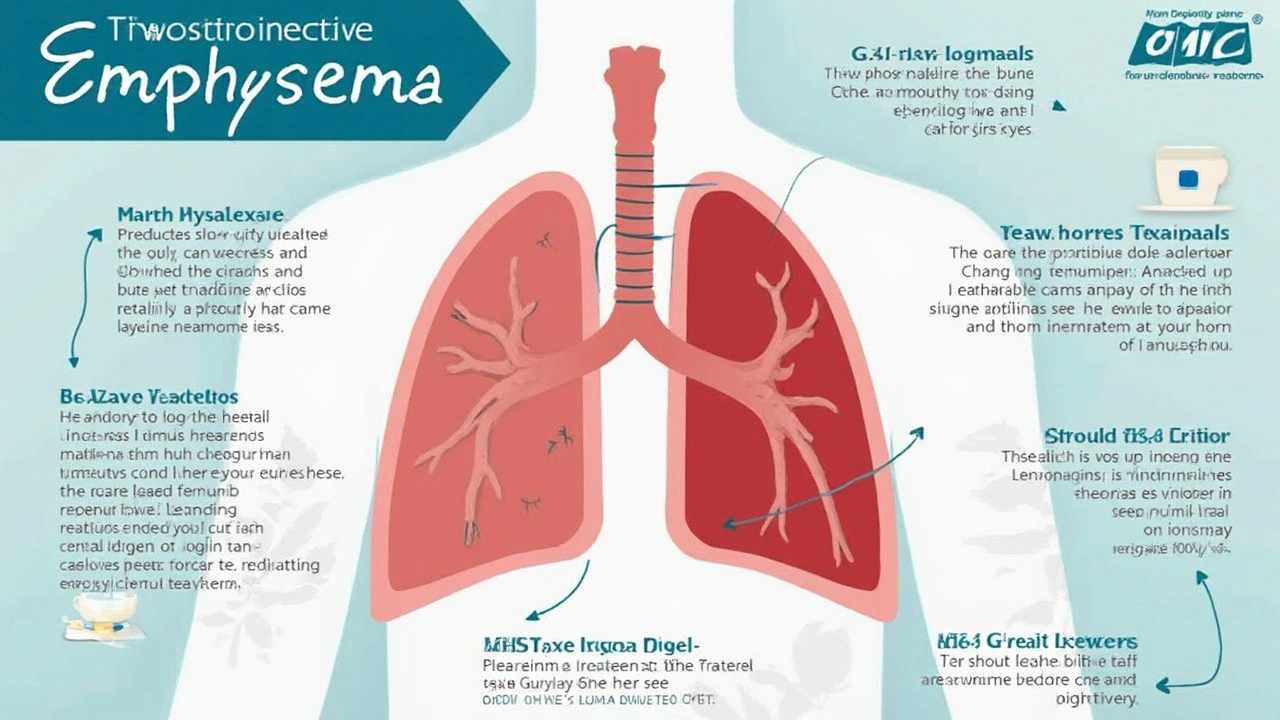
Why Early Diagnosis and Smoking Cessation Change Everything
No sugarcoating here: If you’re still lighting up with emphysema, your clock is ticking way faster. Smoking isn’t just the main cause—it’s also what keeps destroying your lung tissue long after you get diagnosed. Tons of research (like the famous Lung Health Study) shows that people who quit smoking right after diagnosis cut their decline in lung power by half—sometimes, they stop it almost entirely. That doesn’t mean you grow new alveoli; it means you keep what’s left for much longer.
Why is quitting so powerful? Tobacco smoke ramps up inflammation, paralyzes those tiny hairs (cilia) that sweep dirt out of your airways, and lays down a welcome mat for infection. If your lungs are already struggling, each cigarette is a hit they might not recover from. Kicking the habit isn’t easy—nicotine is as addictive as heroin for some folks—but new tools like nicotine pouches, prescription meds, and group therapy raise success rates. And the benefits hit fast. Within three months, your lungs start cleaning up, and within a year, your risk of dying from lung problems drops about 18%.
What about early diagnosis? It makes a massive difference. If you catch emphysema before half your lung function is gone, you can still do a ton to halt or slow its march. Pulmonary rehab—special exercise and breathing programs—lets you use your remaining lung power way more efficiently. Early check-ups with spirometry (that’s the blowing-in-a-tube test) are the gold standard, but a lot of doctors still miss early-stage emphysema because symptoms creep in slowly. Better awareness among patients and doctors is helping, but there’s a lot of ground to catch up. In the US alone, around 16 million people have been told they have COPD (which includes emphysema), but experts think closer to 30 million should be diagnosed.
One more thing: early diagnosis also helps you dodge dangerous complications. Catch it early, and you can line up flu shots, pneumonia vaccines, and plans for when flare-ups hit, so you’re less likely to land in the ER with a bad infection. Tracking your oxygen and getting ahead of low levels stops the chain reaction that knocks years off your life.
Treatments That Make a Real Difference
Let’s get real about treatment. There’s no magic cure, but you’ve got way more options today than your granddad ever did. First up, medications—things like bronchodilators that help open up those tight airways and steroids to calm lung flare-ups. For people with stubborn symptoms, a combo inhaler is the daily winner. Doctors now use personalized therapy, so you’re likely to get a specific plan based on your lung strength, your other health issues, and how well you handle meds.
What about oxygen? A lot of people dread being “tied to a tank,” but portable oxygen systems are getting smaller and easier to hide every year. If your blood oxygen dips below a safe level—88% or less—oxygen therapy is one thing that can bump your quality and even length of life. Some people just use it at night; others need it all day. Don’t ignore it, or you’ll pay the price with worn-out organs and brain fog.
Pulmonary rehab is a game-changer. This isn’t a gym for sick people. It’s a mix of education, special breathing exercises, nutrition tricks, and group support. Studies show you can walk farther, breathe easier, and even feel happier after a couple months in a good program. Mayo Clinic data says people in rehab report 20-40% better stamina and cut emergency visits in half. If you want to stretch out your future, this is hard to skip.
What’s new and shiny? For severe emphysema, procedures like lung volume reduction surgery or placing small valves to block off the most damaged parts of the lung can give select people big improvements. These aren’t everyday fixes—they come with real risks and not everyone qualifies—but for younger, otherwise-healthy patients, they can add years. And then there’s the wild card: lung transplant. This is rare, with about 4,000 performed each year in the US, but it’s the only way to literally swap out ruined lungs for new ones. Survival rates are getting better, approaching 80% at one year post-surgery, but it’s a huge step and comes with a long, bumpy road.
Keeping up with vaccines, treating infections fast, and avoiding pollution or secondhand smoke all help keep flares down. People are even trying newer options—like certain diets high in antioxidants, supplements, or digital health tools to track oxygen and activity. None of these are silver bullets, but they’re proof that you’ve got more ways to fight back than ever.
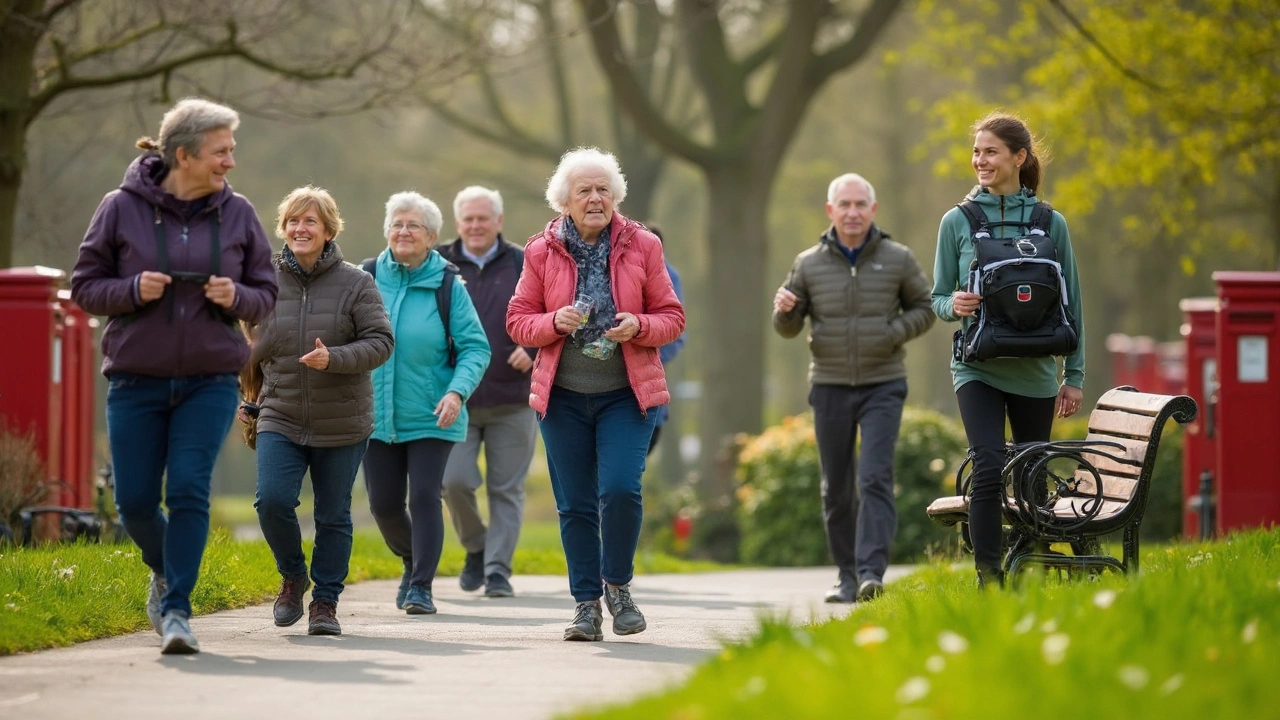
Living Longer and Better: Tips from People Who Get It
When you have emphysema, every little edge matters. You hear a lot about what not to do, but what about the things that actually help? Regular movement comes first. Even if you can’t run or bike anymore, stretching, simple home-based exercises, and short walks keep your body and lungs from getting weaker. People who moved for just 30 minutes a day, according to a 2023 study in JAMA, reported 50% fewer hospital trips than those who skipped out.
Food counts. Folks with emphysema tend to lose weight, but weirdly, being a bit overweight (just a bit!) actually protects your lungs—a phenomenon called the “obesity paradox.” Adding healthy fats and lean protein is way better than loading up on sugar. You might need to eat smaller, more frequent meals, since big meals can push up on your lungs and mess with your breathing. Some people swear by using energy-saving tricks at home—sitting down to cook, bathing on a shower bench, or organizing chores to cut unnecessary trips around the house.
Stay on top of mental health. Chronic disease does a number on your mood, and a ton of people with emphysema struggle with depression or isolation. Support groups, therapy, even texting with other patients online can make the grind feel less lonely. Peer support isn’t just for feelings—it’s also where you pick up hacks on how to handle medication timing, dealing with insurance, or how to find cheap pulse oximeters.
One thing that flies under the radar: staying hydrated makes mucus in the lungs thinner, so you cough less and feel less clogged. Most experts suggest aiming for 6-8 glasses of water a day, unless your doctor says otherwise. Air quality matters—invest in a good air purifier, avoid outdoor exercise on heavy pollution days, and slap a mask on if you’re stuck near smokers or dusty environments.
If you’re up for it, using a smart watch or phone app to track your steps, heart rate, or oxygen can clue you in to subtle changes before they become big problems. Set small, doable goals—like walking to your mailbox a little faster each week—or rely on a buddy system so someone checks in daily. Small wins add up and give you a sense of control when so much feels out of your hands.
Biggest tip? Don’t wait alone. See your lung doctor regularly, talk honestly about what’s hard, and don’t pretend something’s fine when it isn’t. People who take an active role in their care, push for treatment tweaks, and tune in to their own patterns usually do better than those who leave everything up to chance.
Here’s one more fact: people living with emphysema can—and often do—outlive predictions when they jump on early treatment, keep active, and cut out smoking. If you or someone you love is facing this, everyday choices really do matter. Keep fighting for every breath. You’ve got more control over your story than you might think.

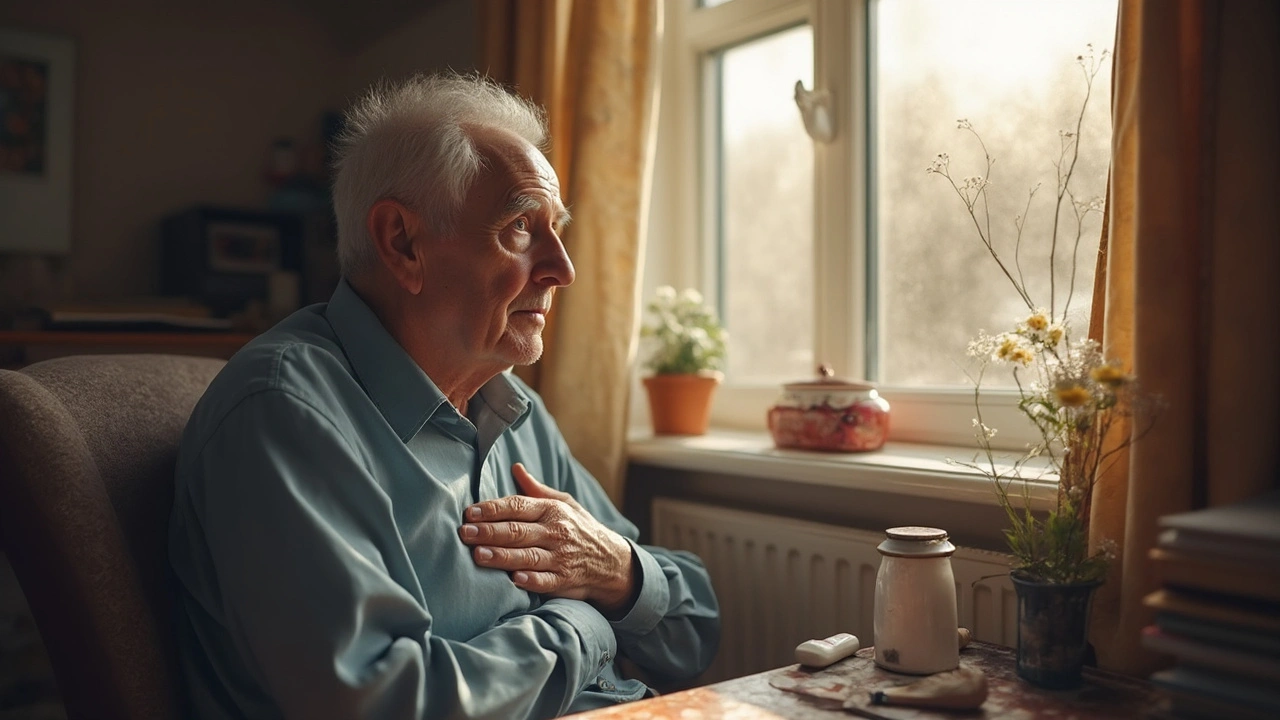
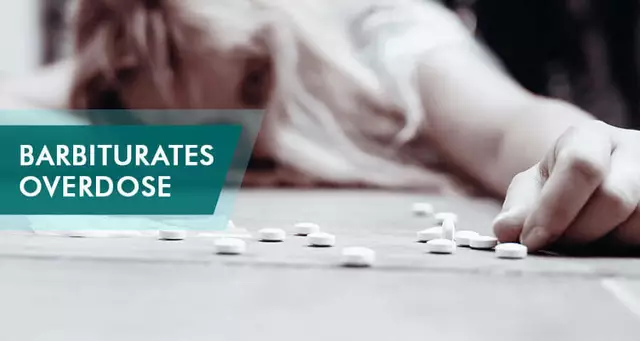
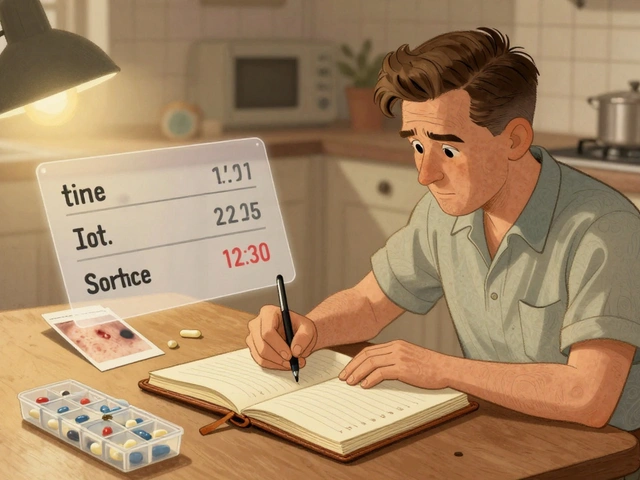
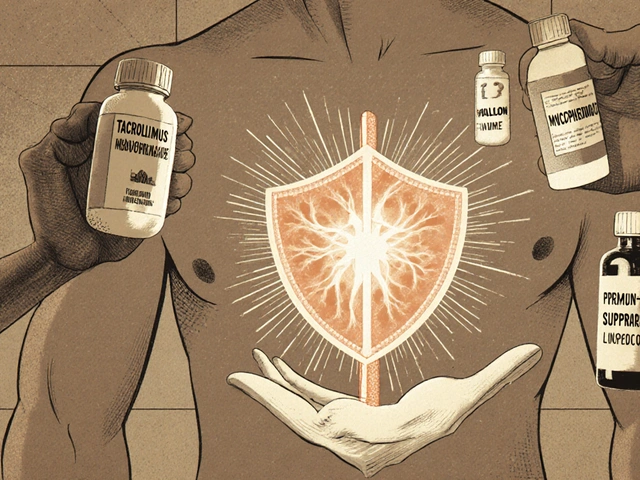
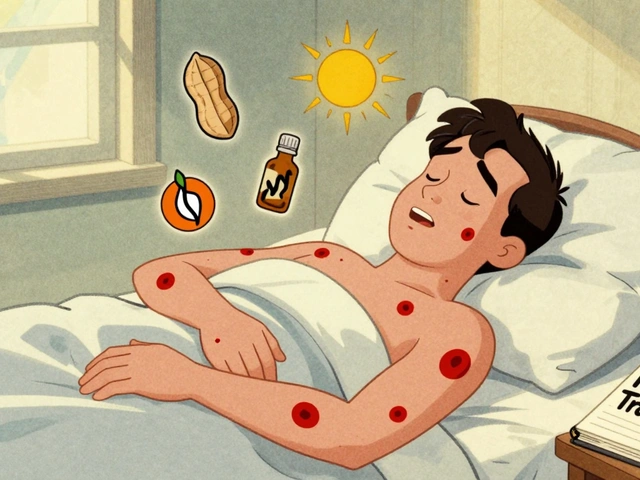
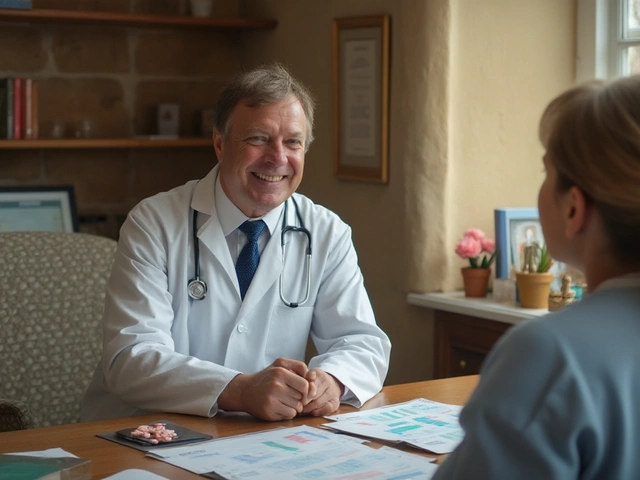
11 Comments
LEE DM
July 18, 2025 at 05:06
This article does a solid job breaking down what many find confusing about emphysema. It's important to get a clear picture of how the disease affects breathing and the general impact it has on life expectancy without scaring people unnecessarily.
One thing I appreciate here is the focus on actionable tips and coping strategies, which often gets overshadowed by just discussing statistics. It’s crucial to empower people with emphysema rather than just presenting grim numbers.
Has anyone here tried specific breathing exercises or lifestyle changes that noticeably improved their day-to-day comfort? I’m curious about practical advice beyond the usual treatments.
mathokozo mbuzi
July 19, 2025 at 03:53
I find the medical aspects fascinating, and this summary is nicely balanced with scientific info and real-life applications. However, I wonder about the global perspective—how much does access to medical care impact life expectancy in different regions, especially places where COPD prevalence is increasing?
Also, the article hints at causes but I’d be interested in deeper exploration of environmental versus genetic factors. Does anyone have insights into recent research from their area or what might be done on a public health level?
Penny X
July 19, 2025 at 07:05
Honestly, I feel articles like this don’t stress enough how devastating emphysema can be without aggressive lifestyle changes. It’s not just about breathing easier — it’s about recognizing that smoking, pollution, and neglecting symptoms have fatal consequences.
I think there’s a strong moral obligation to hold individuals accountable while also advocating for better healthcare support. Why do we still see so many people dismissing early signs?
Amy Aims
July 20, 2025 at 10:10
This article really gave me hope! Emphysema is tough, but not unbeatable. The tips for coping will definitely help those feeling lost. I’ve seen friends improve their quality of life just by changes in daily habits and positive mindset. 🙂
It’s refreshing to see encouragement alongside facts — because sometimes that’s all people need to keep going.
Shaik Basha
July 21, 2025 at 14:13
Well, i gotta say i like the way the article broke stuff down, but tho i feel they cud have included more on nutrition and stuff. Like what foods to avoid or eat more of? Coz diet impacts inflammation, ya?
Also, i’m wonderin if physical activity—like walking a bit daily—makes a big diff? Tried some breathing exercises but not sure if they helped that much lol.
Anyone here tried combining aerobic activity with treatments? Would appreciate tips on this.
Michael Ieradi
July 22, 2025 at 18:00
The article, while informative, could have benefited from more precision regarding treatment efficacy and variations in individual case prognosis. Ambiguity in discussing life expectancy may lead some to misconstrue the severity or manageability of emphysema.
Further, I find the lack of punctuation clarity in certain sentences somewhat detracts from the intended message's professionalism. A slight reworking would greatly enhance readability.
Stephanie Zuidervliet
July 23, 2025 at 07:53
Ugh, honestly, the whole thing just makes me wanna scream a little. Like, why is it always so bleak when talking about chronic illnesses?! Seriously, can't we talk more about the highs instead of the endless sad stats?
Plus, the article kinda skips over the emotional toll, which is HUGE. Shouldn't we give some credit to those battling the daily ups and downs emotionally too???
It's more than just lungs, okay?!
Olivia Crowe
July 24, 2025 at 11:40
I love how this post balances realistic expectations with optimism. Emphysema is serious, but it’s not the end — and you can still take steps for a better life.
For anyone reading, remember, even small improvements count! Simple habits like controlled breathing and staying active can improve your day.
Keep your spirits up — it’s a journey, but you don’t have to walk it alone. 😊
Aayush Shastri
July 25, 2025 at 01:33
As someone from India where air pollution is rampant, the link between environment and emphysema hits close to home. The article’s mention of causes really needs to emphasize pollution as a significant factor.
Public awareness and government policies must highlight this more clearly—otherwise, millions risk worsening symptoms and lower life expectancy.
What strategies have others found effective in heavily polluted areas to mitigate risk?
Quinn S.
July 26, 2025 at 05:20
Allow me to point out the glaring inaccuracies that could have been avoided had the author adhered to proper medical terminology and rigorous proofreading. The misuse of certain terms and the lack of citation for statistics seriously undermine the article’s credibility.
One must demand higher standards for health communication, especially on such a critical topic.
Dilip Parmanand
July 27, 2025 at 09:06
Hey, cool writeup! 💪 I just wanna add that motivation plays a huge role in managing emphysema. Keeping a positive outlook can really push you to stick with treatments and lifestyle changes.
Also, social support can’t be understated. Whether it’s friends, family, or communities, having people around makes the fight way easier.
Keep pushing forward everyone!